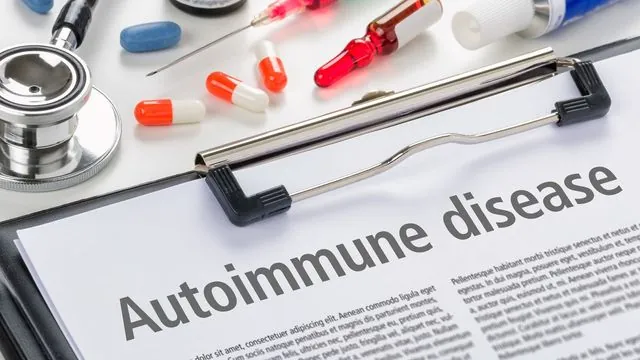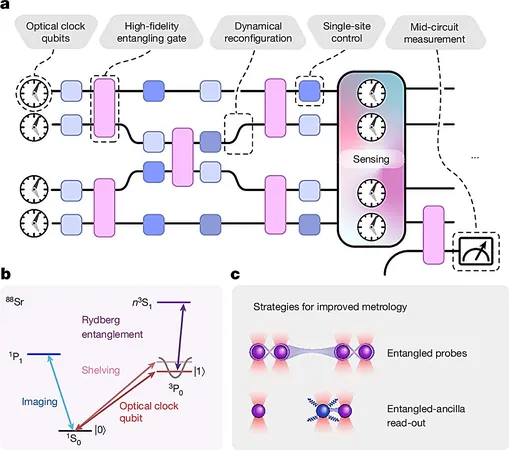
Groundbreaking CRispr Therapy Offers Hope for Autoimmune Disease Patients
2024-10-07
Author: Li
Introduction
In a remarkable development for autoimmune treatment, a recent study published in the journal Cell indicates that three patients are enjoying “safe, deep remission” following CRISPR-Cas9-modified cell therapy. This innovative approach stems from an ongoing clinical trial (NCT05859997) led by Dr. Xu Huji, a prominent professor of medicine at Tsinghua University and Second Military Medical University (SMMU) in Shanghai, and backed by Bioray Laboratories.
Innovative Approach with Allogeneic T Cells
What makes this treatment distinct is its use of allogeneic T cells, also known as universal cell therapy, which presents a significant advancement over the traditional CAR T-cell therapy. While commonly approved CAR T-cell treatments necessitate the use of a patient’s own T cells (autologous cells), this method has often faced limitations due to its complexity and high cost. The reliance on patient-derived cells can hinder scalability and accessibility for many in need.
CAR T-Cell Therapy Explained
CAR T-cell therapy operates on the principle of genetic modification. Traditionally, T cells are extracted from a patient, engineered in a lab to express CARs on their surface, and then reintroduced back into the patient’s body. While this personalized process has shown remarkable efficacy, it also raises concerns about the patient’s immune system potentially rejecting the modified cells or vice versa.
CRISPR Gene-Editing Technology at Work
To navigate this complex landscape, Dr. Huji’s team employed advanced CRISPR gene-editing technology. They collected T cells from a 21-year-old female donor and eliminated five genes linked to immune rejection. The modified cells were then engineered to recognize CD19, a receptor abundant on B cells, to target and eliminate those implicated in autoimmune diseases.
Promising Results from the Trial
Among the trial participants were a woman suffering from an autoimmune condition that leads to muscular weakness and two men diagnosed with diffuse cutaneous systemic sclerosis. The results were promising—each patient exhibited complete B-cell depletion with no detection of cytokine release syndrome, a common adverse reaction associated with CAR T-cell therapies.
Short-term Outcomes
During a six-month follow-up period, significant improvements in clinical response indexes were observed, alongside a reversal of inflammation and fibrosis. “Our findings highlight the safety and potential of these CRISPR-modified off-the-shelf CAR T cells in managing severe and resistant autoimmune disorders,” Dr. Huji noted.
Future Directions
While the initial outcomes are encouraging, the researchers emphasize that ongoing monitoring is essential to determine the long-term efficacy and safety profile of this therapy. They also hint at the possibility of future trials that could explore the impact of higher or multiple doses, expanding treatment options for patients battling similar conditions.
Conclusion
In light of its encouraging results, the clinical community is watching closely as this innovative CRISPR-based therapy could transform the landscape for patients facing challenging autoimmune diseases. Could this breakthrough be the key to unlocking new avenues of treatment for millions worldwide? Stay tuned as research progresses!



 Brasil (PT)
Brasil (PT)
 Canada (EN)
Canada (EN)
 Chile (ES)
Chile (ES)
 España (ES)
España (ES)
 France (FR)
France (FR)
 Hong Kong (EN)
Hong Kong (EN)
 Italia (IT)
Italia (IT)
 日本 (JA)
日本 (JA)
 Magyarország (HU)
Magyarország (HU)
 Norge (NO)
Norge (NO)
 Polska (PL)
Polska (PL)
 Schweiz (DE)
Schweiz (DE)
 Singapore (EN)
Singapore (EN)
 Sverige (SV)
Sverige (SV)
 Suomi (FI)
Suomi (FI)
 Türkiye (TR)
Türkiye (TR)